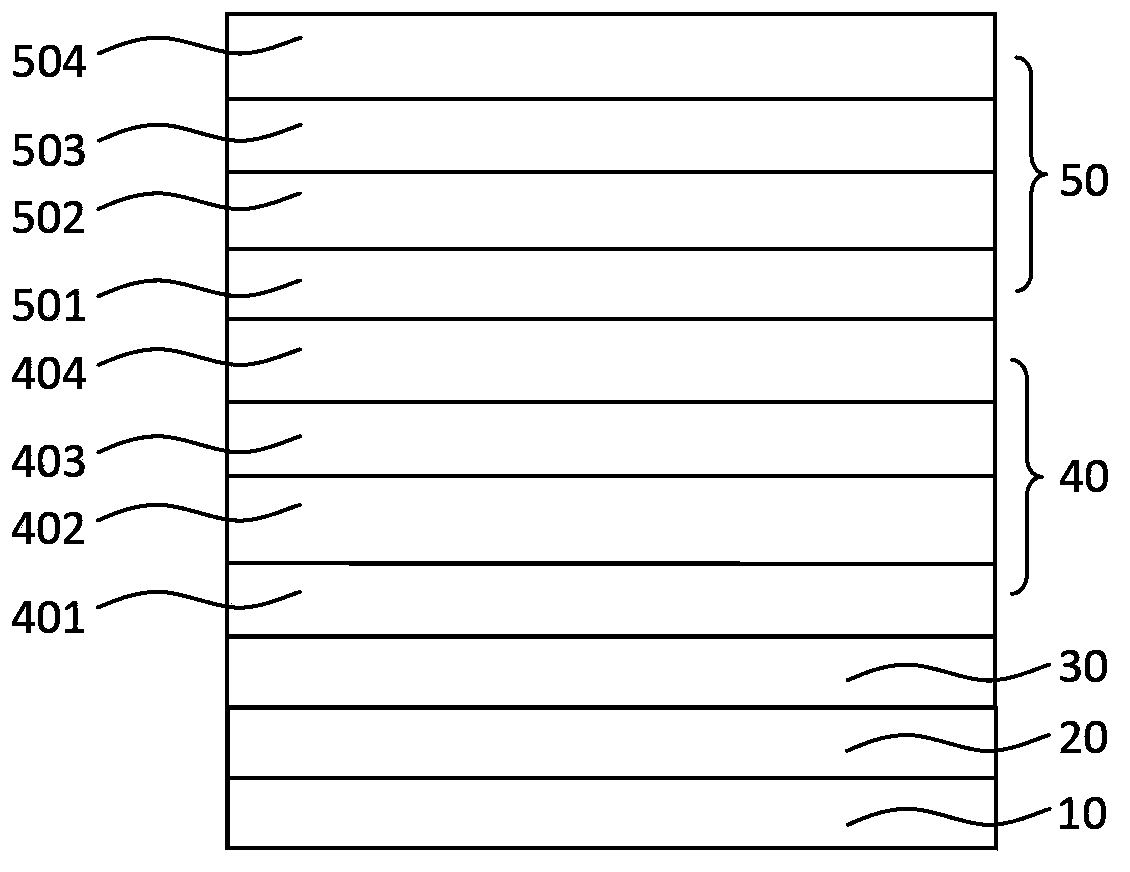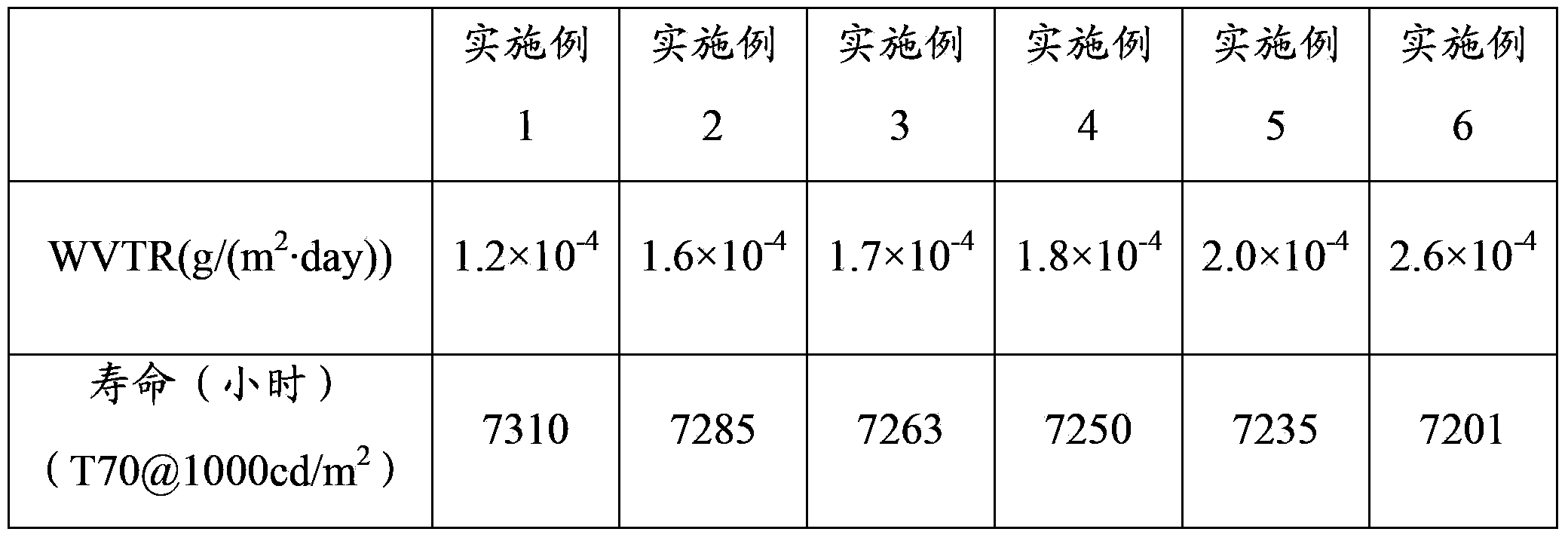Organic light emitting device and preparation method thereof
An electroluminescent device and electroluminescent technology, which are applied in the fields of electric solid device, semiconductor/solid state device manufacturing, electrical components, etc., can solve the problems of poor mechanical strength, high cost, weak water and oxygen resistance, etc. and mechanical processing performance, good wear resistance and stability, good water vapor isolation effect
- Summary
- Abstract
- Description
- Claims
- Application Information
AI Technical Summary
Problems solved by technology
Method used
Image
Examples
Embodiment 1
[0114] An organic electroluminescent device is prepared through the following steps:
[0115] (1) Provide a clean anode conductive substrate:
[0116] Clean the ITO glass substrate with acetone, ethanol, deionized water, and ethanol in an ultrasonic cleaner in sequence, wash and wash for 5 minutes in one item, then blow dry with nitrogen, and dry in an oven for later use; surface activation of the cleaned ITO glass processing; ITO thickness is 100nm;
[0117] (2) Vacuum evaporation of the luminescent functional layer on the ITO glass substrate:
[0118] Specifically, the light emitting functional layer includes a hole injection layer, a hole transport layer, a light emitting layer, an electron transport layer and an electron injection layer;
[0119] Preparation of the hole injection layer: the MoO 3 The mixture obtained by mixing with NPB according to the mass ratio of 3:7 is used as the material of the hole injection layer, the thickness is 10nm, and the vacuum degree is ...
Embodiment 2
[0134] An organic electroluminescent device is prepared through the following steps:
[0135] (1), (2), (3) are the same as embodiment 1;
[0136] (4) Prepare the encapsulation layer on the outside of the cathode:
[0137] The encapsulation layer includes three overlapping encapsulation layer units, and the encapsulation layer unit includes a first organic barrier layer, a first inorganic barrier layer, a second organic barrier layer, and a second inorganic barrier layer stacked in sequence;
[0138] Production of the first organic barrier layer: the mixture formed by mixing NPB and BCP according to the material ratio of 1:1 is used as the material of the first organic barrier layer, and the vacuum degree is 5×10 -5 Pa, evaporation rate 2 / s, thickness 250nm;
[0139] Fabrication of the first inorganic barrier layer: the Bi 2 Te 3 The mixture formed by mixing with CoFe according to the mass ratio of 1:9 is used as the material of the first inorganic barrier layer, which ...
Embodiment 3
[0144] An organic electroluminescent device is prepared through the following steps:
[0145] (1), (2), (3) are the same as embodiment 1;
[0146] (4) Prepare the encapsulation layer on the outside of the cathode:
[0147] The encapsulation layer includes three overlapping encapsulation layer units, and the encapsulation layer unit includes a first organic barrier layer, a first inorganic barrier layer, a second organic barrier layer, and a second inorganic barrier layer stacked in sequence;
[0148] Production of the first organic barrier layer: the mixture formed by mixing TAPC and TPBi according to the material ratio of 1:1 is used as the material of the first organic barrier layer, and the vacuum degree is 5×10 -5 Pa, evaporation rate 0.5 / s, thickness 200nm;
[0149] Production of the first inorganic barrier layer: the mixture formed by mixing CdTe and AlCr according to the mass ratio of 1:4 is used as the material of the first inorganic barrier layer, which is produc...
PUM
| Property | Measurement | Unit |
|---|---|---|
| Thickness | aaaaa | aaaaa |
| Thickness | aaaaa | aaaaa |
| Thickness | aaaaa | aaaaa |
Abstract
Description
Claims
Application Information
 Login to View More
Login to View More - R&D
- Intellectual Property
- Life Sciences
- Materials
- Tech Scout
- Unparalleled Data Quality
- Higher Quality Content
- 60% Fewer Hallucinations
Browse by: Latest US Patents, China's latest patents, Technical Efficacy Thesaurus, Application Domain, Technology Topic, Popular Technical Reports.
© 2025 PatSnap. All rights reserved.Legal|Privacy policy|Modern Slavery Act Transparency Statement|Sitemap|About US| Contact US: help@patsnap.com


